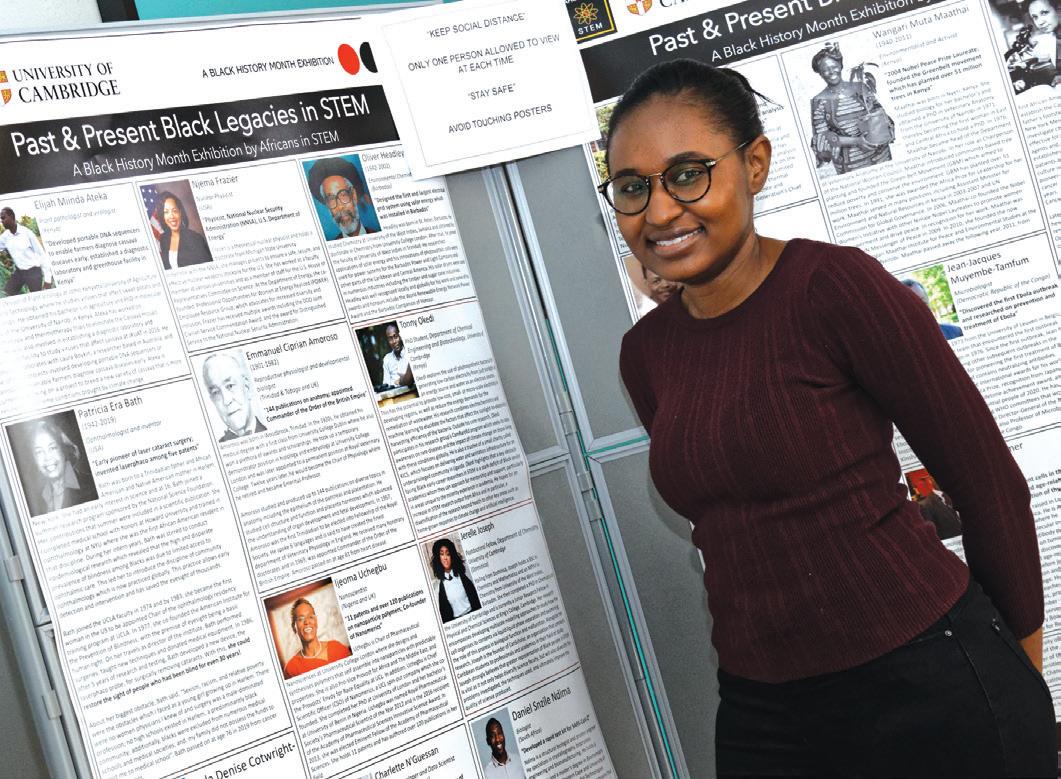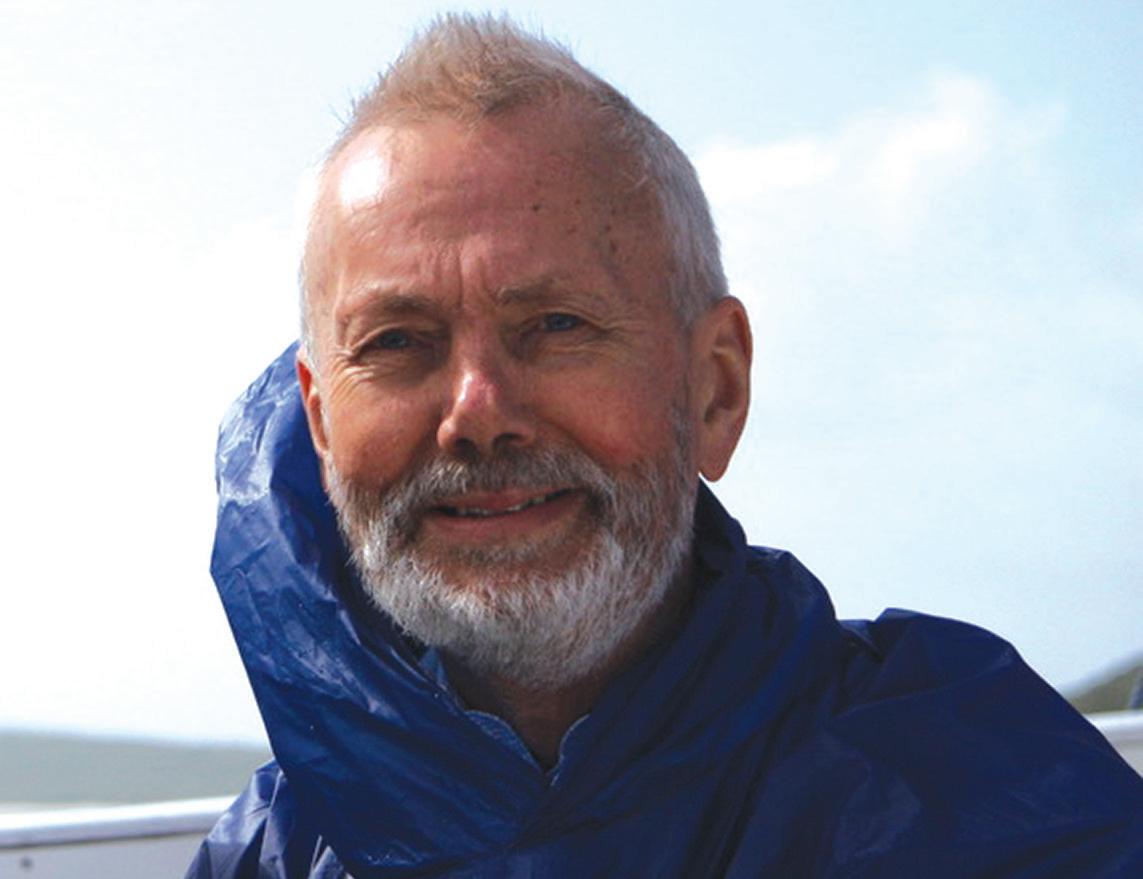
4 minute read
Black scientists matter
The idea behind Africans in STEM is a simple one. “We wanted to give students involved in STEM research who are African or African heritage a forum to connect, share ideas and collaborate,” says third-year PhD student and Gates scholar Sandile Mtetwa, who founded the organisation with three other African students here in 2019.
Sandile Mtetwa and Head of Department, Dr James Keeler
With the surge of interest in the Black Lives Matter STEM departments throughout October, and can still be movement earlier this year, the group decided to expand viewed on the Africans in STEM website. on this idea. “We wanted to include issues that a lot of Black students in general “I think this project is The exhibition is divided into a series of might face, not only in Cambridge but important because it really posters of notable Black scientists. The in other UK universities,” says Sandile. uncovers hidden stories first two sections, Historic Black Legacies We held an event earlier this year to about Black people in STEM and Black Legacies in STEM, discuss these issues, and we found a lot in STEM.” highlight Black scientists past and present of students were concerned about the Sandile Mtetwa from around the world. under-representation of Black students, especially in the sciences,” says Sandile. The third section, Black (Early Career) Scientists in In response, Sandile and Africans in STEM co-founder including Jerelle Joseph, who was a Gates scholar in Cynthia Okoye, a PhD student in Pharmacology, wanted to the Wales group and is now a postdoc in the Cavendish commemorate Black History month by creating something Laboratory, and David Izuogu, a PhD student in the that showcased and celebrated black scientists in STEM. Thom group.
The resulting exhibition, entitled “Past & Present: Black Legacies in STEM”, was displayed in Chemistry and four other Cambridge, features Black scientists in Cambridge, Although Africans in STEM started with four members, two have since left Cambridge, which means Sandile and Cynthia

Gabriella Bocchetti

David Izuogu
put a lot of work into the exhibition. “It took a lot of time because we had a specific idea which then changed over time, and was a bit of a struggle,” says Sandile. “But I think this project is important because it really uncovers hidden stories about Black people in STEM.” It was also inspiring for Sandile personally: “I didn’t know much about these people and as I got learn about them I thought: if someone is able to do that, then so am I.”
To further mark Black History month, Sandile and Cynthia helped organise a virtual panel discussion with the Graduate and Postdoc Committee of the Department of Pharmacology, called “Spotlight on Black Female Scientists in Cambridge,” in which six scientists spoke about their research and how they navigate academia and Cambridge.
Since arriving in Cambridge two years ago, Sandile has also taken part in events to encourage more girls to take STEM subjects while continuing to run the non-profit she set up as an undergraduate at the University of Zimbabwe, which

Sandile Mtetwa Jerelle Joseph
enables the economic, social and academic empowerment of young women and girls.
Sandile is also working hard on her PhD project in the Wheatley group. As an experimentalist she missed out on some research time over lockdown, but she is back in the lab now. “I lost time for practical work, but in one way it was good for me because I took the time to learn more about the conductive materials I’m working with,” she says
Sandile is researching metal-organic frameworks (MOFs), with the aim of developing materials suitable for energy production and sensing technologies. She investigates both semi-conductive MOFs, which could potentially be used to evolve hydrogen as an energy carrier using photocatalysis, and conductive MOFs, which can be useful to sense toxic gases.
Sandile is working in collaboration with a team of theoretical chemists at the University of Sheffield. “They create the calculations to identify or discover new MOFs, and my goal is to be able to validate these calculations through practical chemistry, and to also give them insight on what to look out for when doing their calculations so we can discover novel materials that might be used in these applications,” she says.
Africans in STEM is looking for more committed members, because the next step is to grow the group within the UK. They have already made contact with representatives from other universities, and are hoping to organise a UK-wide symposium next year (this year’s was cancelled due to Covid), which can eventually be rotated annually with other hosts.










